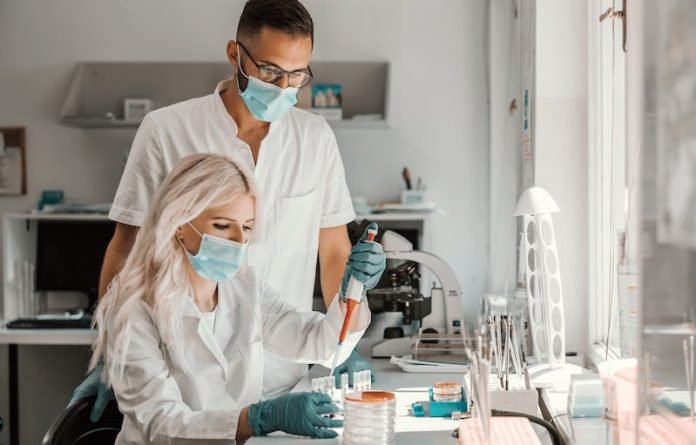
In a study from the Institut Pasteur and elsewhere, scientists are getting closer to understanding what makes some people so vulnerable to COVID-19-induced illness.
This in turn may guide the development of new therapeutic strategies.
The team found the link between very sick people and their difficulty or inability to produce a key anti-viral protein called type 1 interferon.
Earlier studies had already shown that if type 1 interferon was compromised then the viral infection would not be cleared.
But the new work builds on this and helps explain why simply administering type 1 interferon therapeutically has been largely ineffective.
This study found that when type 1 interferon was added to the blood of patients with severe COVID-19, their immune cells were much more inflammatory as compared to people who had a much milder COVID-19.
The new findings support interferon testing much earlier in the disease time course and reinforce the need to screen people with compromised responses (either due to genetics, autoantibodies or treatments) for complications with COVID or other acute viral infections.
This study reveals important new insights into why inadequate and inappropriate type I interferon responses can be so detrimental in severe COVID-19.
This can help researchers to understand more about the early biological immune processes that go wrong in people with severe diseases.
Novel useful clinical research like this helps researchers understand how people are vulnerable to COVID-19.
If you care about COVID, please read studies about new way to predict severe COVID-19 and how vitamin B may help fight COVID-19.
For more information about COVID, please see recent studies that COVID-19 virus exploits many types of frailty and ill health, and results showing new antiviral drug combo could effectively treat COVID-19.
The study was conducted by Darragh Duffy et al and published in Nature Communications.
Copyright © 2022 Knowridge Science Report. All rights reserved.



